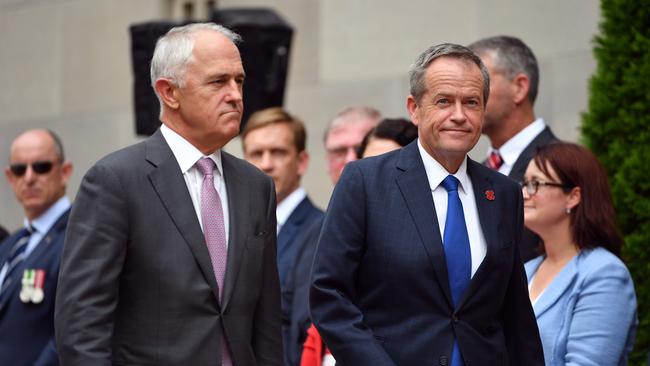What to expect if Shorten becomes PM
From negative gearing to our AAA rating, business needs to wake up to the implications of a 2019 ALP victory.

After all, but for the Victorian Premier Daniel Andrews trying to damage the Country Fire Authority to help his mates, Shorten would have almost certainly been Prime Minister after the July 2016 election.
On the other hand, if Malcolm Turnbull does not improve his poll ratings during the next 12 months he is likely to be replaced, possibly by the attacking Peter Dutton.
In the past, politicians on both sides have tended to tear up their election promises but, like him or hate him, Donald Trump has set a new benchmark for politicians honouring promises — Australia will be very different under Bill Shorten.
Shorten plans a major spending campaign in areas like health and education and appears set to lift the deficit. Of course, the current government is also big on spending (one reason why Cory Bernardi left the party) so if Shorten adds his spending to the Coalition’s, then almost certainly we will lose our Triple-A credit rating and, as a result, interest rates will be higher because of the increased cost of overseas borrowing.
The biggest single difference between the parties is that the ALP plans to restrict negative gearing to new buildings. At the moment we have a rush of negative gearing purchases of existing apartments and houses — almost as though people are getting set before it’s too late.
These dwelling buyers need to be aware that if Shorten becomes PM, then when they come to sell, the buyers will have to be genuine homeowners because there can be no negative gearing on existing houses. All other things being equal the price of dwellings in many areas will fall.
On current ALP policy, assets purchased after July this year will lose a good part of their capital gains advantage. That date was set last year for the election so it may change. But the capital gains measures are still on the ALP’s website, so, if you are planning on making an investment, do it before July this year, just to be on the safe side.
But again people who buy the asset you have purchased will have an inflated capital gains tax bill and so may drop the price that they are prepared to pay.
The ALP and the Greens are beholden to the CFMEU for much of their cash so the union will have a big say in policies in the building industry. The Australian Building and Construction Commission will continue to exist unless it is changed by legislation. But the people running it may become more “union friendly”.
Bill Shorten understands that small business will be important. It’s currently outrageous that the tax commissioner has such wide powers over small business and I would expect that Shorten will support an independent body for small business to appeal to if they are victims of the outrageous small business actions currently taking place parts of the ATO (Tax office in stunning U-turn on gold tax fraud, January 11).
The current government’s plan to lower company tax will be rejected by Shorten. Because the US is planning to reduce company tax rates from 25 to 15 per cent, the Coalition’s plan to cut the tax rate from 30 to 25 per cent over 10 years is almost akin to doing nothing.
It was a sound policy at the time, designed as it was before Trump. Shorten’s tax view will nevertheless be controversial. He will reduce the tax burden for small businesses.
Shorten is looking to impose a carbon tax and/or an emissions trading scheme. He may need the money for his social service bill.
Shorten will be very tough on companies that avoid paying penalty rates and will generally be much more friendly to unions, the ALP power base.
Fortunately, both parties are dedicated to the US alliance and to protecting borders. The ALP has learned its lesson. Nevertheless a Shorten government will be very different to the Coalition.







I am not in the business of predicting the 2019 election result but business and investors must now prepare for the real possibility that William Richard Shorten is to be our next Prime Minister.